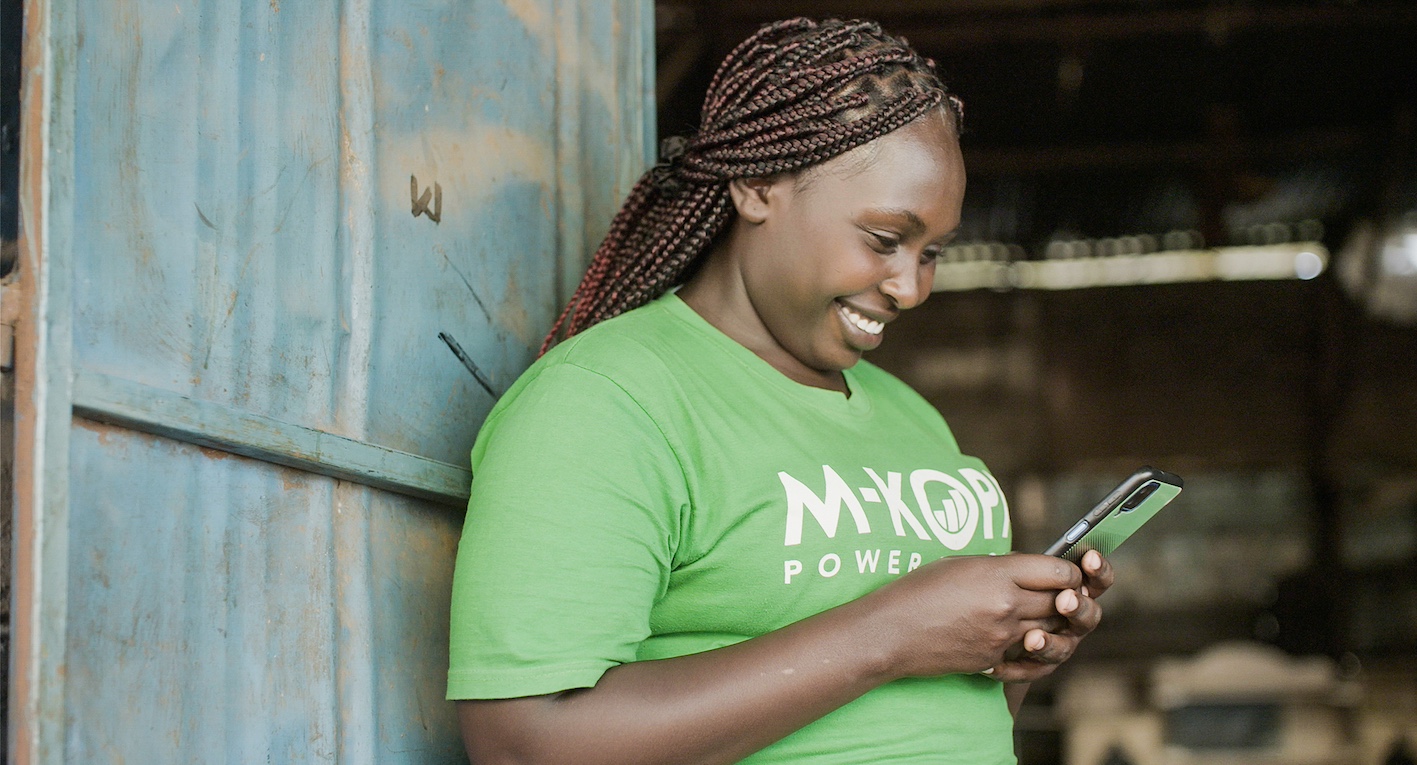advertisement
Improving Lives With AI & Financial Inclusion In Kenya

Jane Omondi sells freshly cooked fish from a stand on a bustling roadside in Utawala, a low- to medium-income neighborhood about 16 kilometers, or 10 miles, east of central Nairobi.
Omondi grosses about 2,500 Kenyan shillings, or about $17, on her sales each day and takes home about 1,000 shillings after expenses. Her modest earnings are slightly above average for the majority of Kenyans.
In February 2023, Omondi was hospitalized when she went into labor and her third child was born prematurely. They were in the hospital for three weeks. For many Kenyans, this would be a disaster because of the medical expenses and lost income.
advertisement
But Omondi had hospitalization insurance that helped cover her medical expenses and was able to recuperate lost income with a low-interest loan. She holds the key to that safety net in the palm of her hand – it’s her smartphone.
Through a company called M-KOPA, she bought the phone with a microloan, which she paid off in 90 days through the company’s app on the phone. The phone became the collateral against which she could obtain insurance and further loans. She pays 75 shillings a day, or about 50 cents, to service the loans. “M-KOPA has made a big difference in my life,” she says.
Today, more than 3 million customers in Africa who might not have been able to get credit from a bank have obtained products and loans through M-KOPA, a fintech company that serves the financially excluded. While the idea is simple, advances in AI and machine learning on Azure have improved the business model for M-KOPA. The use of AI has helped M-KOPA achieve significant increases in customer repayment performance – particularly for the follow-on products and services that M-KOPA offers to customers once they have successfully repaid their initial loan, according to Owen Scott, the chief technology officer of M-KOPA.
advertisement
“Tracking the health of our lending portfolio is an absolute bedrock competency of the organization,” says Scott. “We use machine learning models to forecast the repayment of every single loan in our portfolio – every single day. And that gives us very early signals on any changes in repayment patterns, which in turn helps us strike an important balance between inclusive pricing, financial responsibility and, ultimately, customer protection.”
With the entire operation running in the Azure cloud, Scott says, “we’re very deeply embedded in the entire Microsoft ecosystem.” In addition to Microsoft AI and machine learning, the company uses Azure Cognitive Services, Azure Kubernetes and Azure Cosmos DB.
Supporting ‘financial resilience’
advertisement
Founded in 2011 in Kenya, M-KOPA has expanded into Uganda, Nigeria and Ghana and is currently beginning operations in South Africa. By 2022, it had deployed more than $1 billion in credit with a focus on providing solutions that give people access to the digital world and help them financially in a way that is affordable and sustainable.
Nancy Sangoro, director of customer experience and retail at M-KOPA says, “Our mission is to make financing for everyday essentials affordable to everyone.”
That financing gives M-KOPA customers access to essential products they need to improve their lives, she says.
“When I think about the challenges that a lot of customers face, I can group them into two. One is financial resilience … Most customers are incapable of dealing with unforeseen emergency situations. Through our upgrade products like health insurance, these customers are able to deal with unforeseen emergencies.”
She says that M-KOPA has issued about 204,000 customers with health insurance policies.
“The second challenge relates to access to credit,” she says. “Eighty-two percent of our customers have reported that by being able to access credit, they’ve been able to expand their businesses and grow their income investing the excess funds in essentials like food, rent and education, which essentially improves their quality of life.”